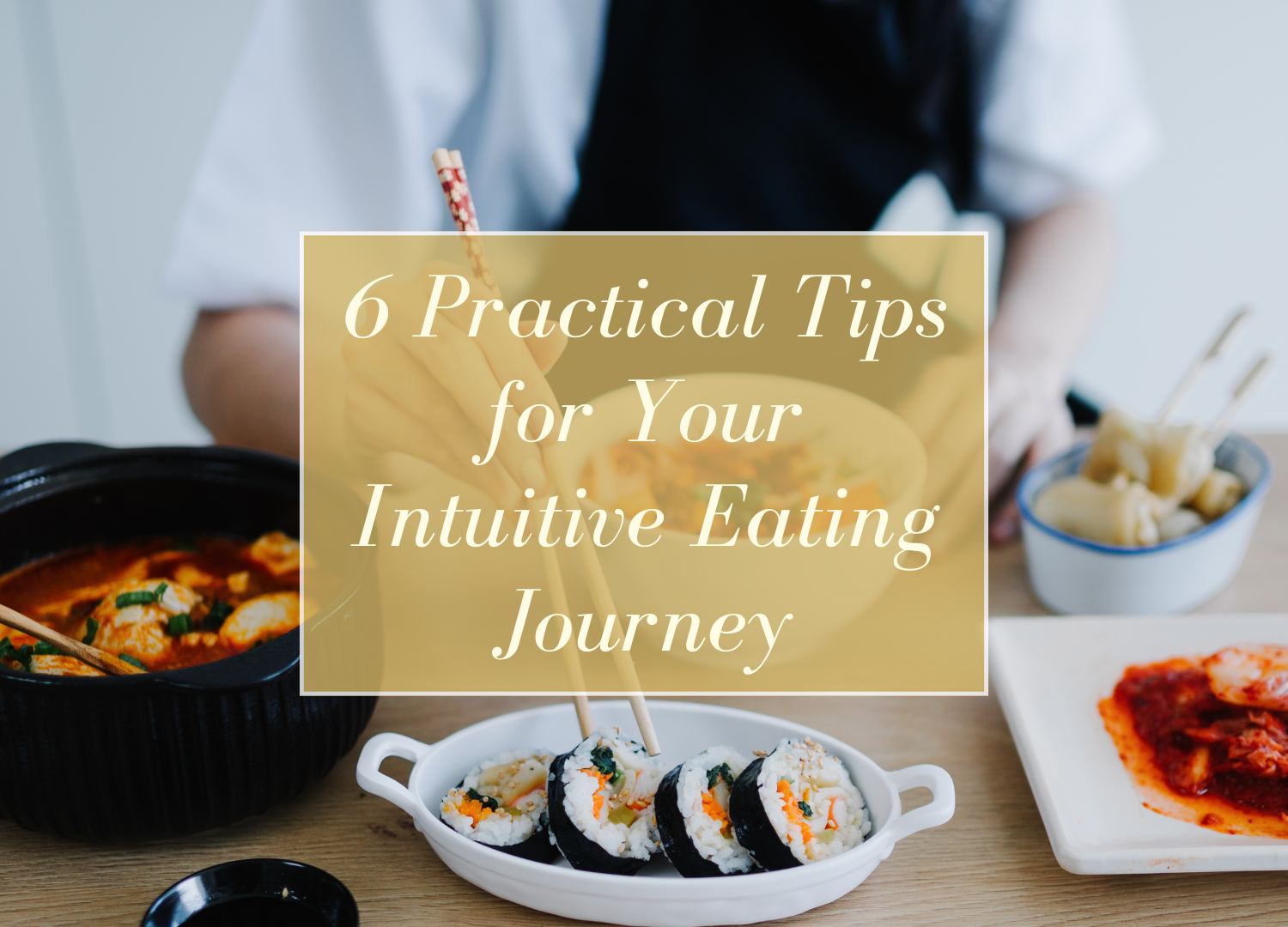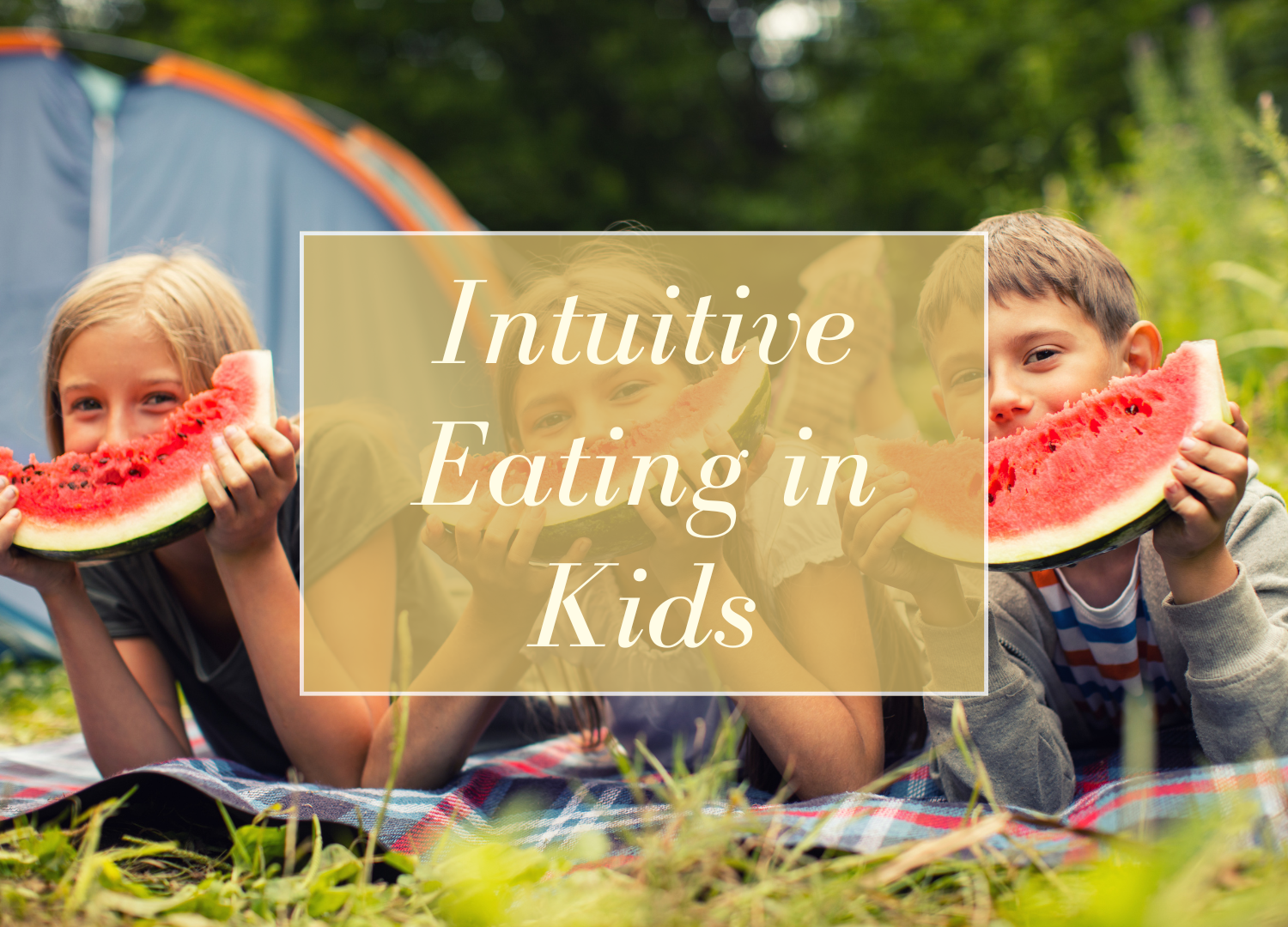Ask the Team: What does a positive relationship with movement look like?
Is this a burning question in your mind; does everyone feel like they have to work out? Why does exercise feel like such a chore? What will happen if I don’t exercise on a regular basis?
Here are a few things that a positive relationship with movement IS...
Diabulimia
What’s diabulimia? This is a term you may not be familiar with, but it’s a dangerous issue that affects individuals with diabetes. People with diabetes are already at higher risk for developing eating disorders (up to 20% of type 1 diabetics will develop an eating disorder in their lifetime). So, what is diabulimia and why is it a problem?
10 Ways You Might Be Restricting Without Realizing It
You might have heard that restriction is the number one driving force behind feeling out of control with food. Feeling out of control with food can play out in various ways such as binge eating until you feel physically uncomfortable, feeling like you can't keep certain foods in the house because you will eat it ALL (GASP), and/or thinking about food all day. Not to mention did you know that restiction of food mimics addiction? Yes, read that again. So generally the people that have rules around food and/or are micromanaging food feel addicted to food. But what does it mean to “restrict”?
5 Signs You Have a Positive Relationship with Food
Here at Collaborative Counseling and Nutrition we are passionate about helping others create a positive relationship with food and body. We talk a lot about what an unhealthy relationship with food looks like but do you know what a healthy/positive relationship with food looks like?
Ask the Team: Can you exercise while working on your relationship with food and your body?
It has been all the buzz lately with eating disorder treatment research; if you can and how much you should allow exercise while engaging in eating disorder treatment. We have come a long way in understanding the impact of engaging in exercise + eating disorder treatment simultaneously. The biggest thing that stood out to me from the get go is if we are going to intentionally work on our relationship and beliefs around food and body image, why can’t we also do the same thing with our relationship to exercise?
Eating Disorders in Minoritized Communities
Today, we are sharing an introduction post to eating disorders in marginalized, minoritized, and underrepresented communities. We will cover statistics, stereotypes, and barriers to diagnosis and treatment. Keep an eye out for upcoming posts covering eating disorders in these groups (ie. EDs in the Black Community; EDs in the LGBTQIA2+ Community, etc.).
All About BMI
The Body Mass Index (BMI) is a number that must tell us a great deal about our health, right? After all, it’s printed at the top of the page, right next to your name and DOB on most medical records, so it must be important!
But what does it really tell us? At its core, BMI only reflects two things: a person’s weight relative to their height. Yet, for reasons that are more historical than scientific, this simplistic metric is widely used by healthcare systems to define health.
6 Practical Tips for Your Intuitive Eating Journey
Today’s post is inspired by my Intuitive Eating coaching clients. While the Intuitive Eating principles can appear pretty straightforward in the books, in practice, it’s not always smooth sailing. Grab 6 of my favorite practical tips for making your intuitive eating journey just a little easier.
Eating Disorders and Athletes
Athletes are not immune from the impact of diet culture. In fact, athletes are 2-3 times more likely to develop an eating disorder compared to non-athletes. Up to 45% of female athletes and 19% of male athletes struggle with disordered eating. Additionally, 84% of female college athletes report having disordered patterns of eating or have engaged in unhealthy weight control practices at one time.
5 Ways to Shift Rigid Thinking
Today, we are talking about different ways of rigid thinking that can show up in our relationship with food and ways to shift to more flexible and fluid ways of thinking.
Look Who's Talking: Understanding Dieting and Ally Voices
Does it ever feel like you have several voices in your head telling you what you should and shouldn’t be doing when it comes to your food choices? When practicing Intuitive Eating, it can be really difficult to make sense of the different voices that pop up and whether they are helpful or hurtful. Today, we are diving into some common voices that you might encounter and whether they are helpful or hurtful.
What is the Satisfaction Factor and How to Discover It
What foods do you enjoy? Are you a fan of salty and sweet things? Perhaps you adore a soft, fluffy croissant with a black, slightly bitter coffee. Or, maybe a warm, velvety soup paired with crispy crackers and a crunchy, but delicate salad is your idea of the perfect lunch. Today, we are discussing the hub of the Intuitive Eating wheel, Discovering the Satisfaction Factor. Let’s dive in.
Focus on Health, Not Weight
What does it mean to be healthy? Is it the absence of disease? Can it be summarized with a number?
Unfortunately, we’re still pretty behind when it comes to fully understanding what it means to be healthy, and that is partly because our healthcare systems still rely on outdated measures to determine health status.
Ob*sity is described as a complex medical condition, brought on by many factors, that leads to excessive body fat. In recent years, we’ve even heard more and more about obesity being a disease, one that is complicated and still quite misunderstood. For such a complicated medical condition, we sure have a pretty naive way of defining and diagnosing it.
Intuitive Eating in Kids
Parenting doesn’t come without its challenges, and raising kids to be healthy eaters is of course something parents strive for. A lot of the time, unfortunately, teaching kids to eat “healthy” can easily get intermixed with messages from diet culture. This well-meaning approach may not only make kids start to distrust their internal signals but can also hurt their ability to be an Intuitive Eater as an adult. This especially can become a problem as foods are labeled “good” vs “bad”, kids are forced to finish a certain “healthy” food to earn dessert, or when they get rewarded for clean plates. So how exactly do we raise our kids to be intuitive eaters, while encouraging eating habits that promote good health? Let’s unpack that today!
What is Interoceptive Awareness?
Interoceptive awareness is the process of receiving, accessing, and evaluating internal bodily signals (1). This includes signals related to mood changes, hunger, thirst, temperature, and aches or pains.
It integrates motivations, emotions, internal organ sensations, and associated thought patterns and reactions. This is complicated stuff that our body is always doing, but you may not be aware of it.
Fat is Not a Feeling
Since “fat” is NOT actually a feeling, when you identify and express your feelings with this label, it can be not only unhelpful and inaccurate but also problematic. Since we, unfortunately, exist within a fatphobic society (read: diet culture), it is not uncommon to have negative associations tied to what “fat” means or represents to you. Most of us have been taught that “fat” is bad, unhealthy, lazy, or even unsuccessful - very harsh labels to attach to a person simply based on their body size (which dismisses major components of body size such as genetics). When people are dealing with difficult feelings, encounter experiences that trigger insecurities/tap into emotional wounds, or worry about being viewed in such a negative light by others or themselves, it could be masked with the label of “fat”.
Diabetes 202
Type 2 Diabetes Mellitus, or T2DM accounts for 90-95% of diabetic diagnoses. T2DM used to be referred to as “adult-onset diabetes”, but children and teens can be affected as well. This is a condition in which insulin is being made, but over time, the body stops being able to use insulin as effectively.
What is Body Neutrality?
Body neutrality is an alternate approach to body positivity that tells us that our bodies are neither bad nor good, they just are. Body neutrality emphasizes the idea that our bodies’ purpose is rooted more in the functionality of living (aka carrying us through life) versus being an indicator of the quality of human we are or how we are doing in life (Horn, 2021).
Ozempic and Eating Disorders
Research shows both losing weight and restrictive dieting increase the risk for eating disorders. Many assume a restrictive diet has a name, rules, and a specific duration, but the term “restrictive diet” simply refers to eating less than your body needs. Not only are GLP-1’s prescribed in addition to restrictive diets, but they also make following a restrictive diet much easier due to their mechanism of action: extreme appetite suppression and delayed gastric emptying.
Introduction to Eating Disorder Recovery Coaching
Have you ever wondered what it’s like to work with an Eating Disorder Recovery Coach? Collaborative Counseling and Nutrition is so excited to be offering this new service. Jennie Griswold, RDN is giving us all the details! Take it away, Jennie!




















